21st CENTURY DEMOCRACY
Politics and Policy
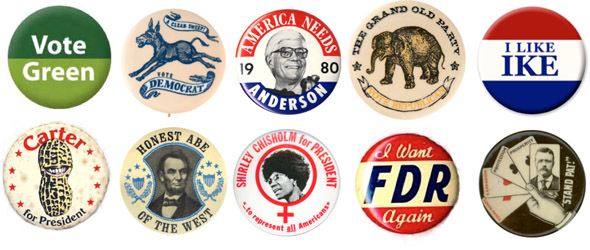
In this websection, MIT's School of Humanities, Arts, and Social Sciences draws on the expertise of our faculty and colleagues across the Institute to provide research-based insights and resources for strengthening democracy at home and around the world.
Gallery of Publications
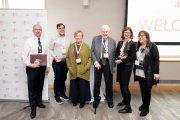
Shining a spotlight on local science journalism
The Knight Science Journalism program’s Victor K. McElheny Award honors outstanding local and regional journalists’ reporting on science, public health, tech, and the environment.
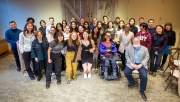
Burchard Scholars gather to network, connect, and learn
The Burchard Scholars dinner series helps create conversations between academic disciplines.
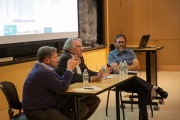
A civil discourse on climate change
The forum is the first in a series planned at MIT this year, part of an initiative meant to encourage the open exchange of ideas.
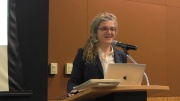
Centering feminism: Investigating marginalized women and potential empowerment
Lerna Ekmekcioglu, MIT’s McMillan-Stewart Associate Professor of History and the director of MIT’s Women’s and Gender Studies program, researches a more inclusive feminism.
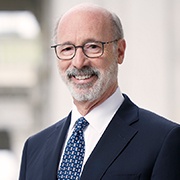
Former Gov. Tom Wolf PhD '81 receives the 2023 Robert A. Muh Alumni Award
He will deliver his award lecture "Collective Action: The Essence of Politics" at a public event on March 21, 2023
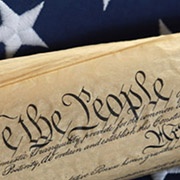
STRENGTHENING DEMOCRACY
A Sampler of MIT Research on U.S. Democracy
A distilled selection of key research, news, and media commentaries from the past year on the state of U.S. democracy, from scholars in MIT's humanities and social science fields. What can leaders and We, the People do to sustain our democracy? Prepared for 6 January 2022.

STRENGTHENING DEMOCRACY
Charles Stewart III on elections in a hyper-partisan era
What can Americans do to protect our democracy? "The 2020 election showed the resilience of the fact-based part of the election administration system — election administrators, judges, and research institutions (including universities) — that have stood for the rule of law in the face of illiberal attacks on election administration. Opponents of fair elections recognize this and have attacked all parts of this fact-based bulwark."
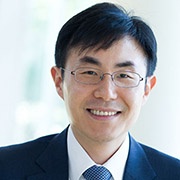
HONORS AND AWARDS
In Song Kim receives the 2021 Levitan Prize
New project by the inventor of LobbyView.org will advance trade theory and the ability of citizens to influence public policy-making.
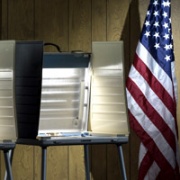
DEMOCRACY
What must the U.S. do now to sustain its democracy?
In the aftermath of the insurrection at the U.S. Capitol, MIT political scientists and historians discuss how to strengthen U.S. democracy.
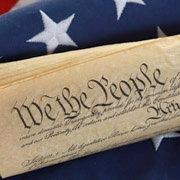
STRENGTHENING DEMOCRACY
What’s Next? Challenges Ahead for the Biden Administration
A series of essays by MIT SHASS scholars, including: Melissa Nobles, Taylor Fravel, Vipin Narang, Dick Samuels, Elizabeth Wood, Barry Posen, Richard Samuels, and John Tirman.
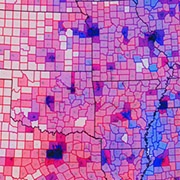
ELECTION 2020
3 Questions: Adam Berinsky on the responsibilities of political leadership and how to assess election polls
"It's the job of our leaders to stand up and challenge unsubstantiated rumors and outright falsehoods. Politicians have tremendous power to lead and to shape information, and voters need to remember this when they head to the polls — in this and every election."
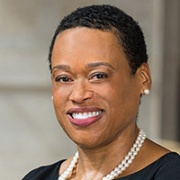
MAKING A JUST SOCIETY | RESTORATIVE JUSTICE
Unearthing the stories of yesterday’s George Floyds
"When we call the victims’ descendants to share our findings, they tell us ‘I never thought I’d get this call.’ The scars remain, and luckily, because we have found documents, so does proof." — Melissa Nobles, Professor of Political Science; MIT Chancellor 2021 - ; Kenan Sahin Dean, MIT School of Humanities, Arts, and Social Sciences 2015-2021
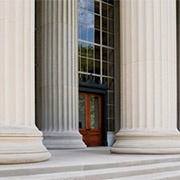
DEMOCRACY AND DEI
Making A Just Society
Resources from the MIT School of Humanities, Arts, and Social Sciences. The Making A Just Society websection includes these categories: Research; Books; the MIT & Slavery Project; Indigenous Peoples; Undergraduate Courses; Free Online MIT Courses; Other MIT Resources; and Elective Affinities, relevant resources beyond MIT.

ELECTION 2020
3Q with political scientist Adam Berinsky
Impact of the pandemic on U.S. political life
"As they do in wartime "people are willing to give the government broader latitude, even to curtail civil liberties, to address this pandemic crisis. But this effect is also short-lived. People are willing to give up some civil liberties for months, but not years."
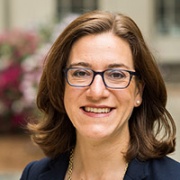
CLIMATE 2020 | HUMANISTIC PERSPECTIVES FROM MIT
Parrish Bergquist '19 | Civic Opinion
"The political challenges of addressing climate change are at least as thorny as the technological challenges, though in different ways."

DEMOCRACY
3Q with historian and Russia expert Elizabeth Wood
How do we understand Russia’s multi-layered interference in the 2016 Elections? MIT historian and Russia expert Elizabeth Wood analyzes Russia’s motives.
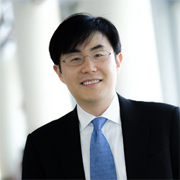
STRENGTHENING DEMOCRACY
3Q: In Song Kim’s LobbyView.org shines a bright light on Washington lobbying
LobbyView.org makes it simple to follow the path of money in politics.
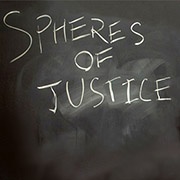
MAKING A JUST SOCIETY
Looking at justice through the lens of political theory
In Bernardo Zacka's 17.01 class, MIT students explore human values and competing theories of the just society
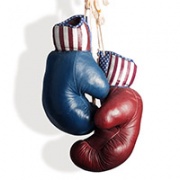
DEMOCRACY
Devin Caughey | On Contemporary Partisan Politics
"There are no easy solutions to polarization, but one possible way to ameliorate it is to make political parties stronger. One of the ironies of contemporary American politics is that partisanship is strong, but parties are, in important respects, weak."

ELECTION INSIGHTS 2018
John Tirman | On Reducing Gun Violence
"A social movement to challenge America's reslient gun culture has rocked politics for the first time in a generation, and might shake up congressional complacency in the midterm elections."
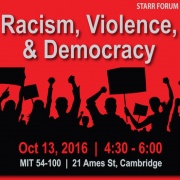
MAKING A JUST SOCIETY
Racism, Violence, and Democracy
Video of a panel discussion on November 16, 2016, sponsored by the MIT SHASS Center for International Studies.

Election Insights 2106: Sally Haslanger on Gender Bias
"As long as 'being presidential' and 'looking presidential' are about being and looking masculine, we will be unable to address what is ripping us apart as a country. Arguably, the androcentrism of our political system...is dangerous for the well-being of our republic."
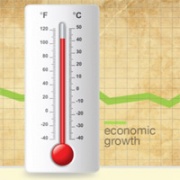
Election Insights 2016: Benjamin Olken on the Economic Impacts of Climate Change
"The increase in average temperature translates into many more extremely hot days. These matter, even in the US: researchers have found that the increased number of extremely hot days lead to lower agricultural yields, lower economic activity in industries exposed to outdoor temperatures, such as construction and mining, and even to increased mortality."
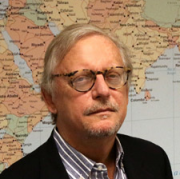
MAKING A JUST SOCIETY
Election Insights 2016 | John Tirman on Immigration
"Negative attitudes toward immigrants have many roots. The economy and 'job stealing' have often ranked high on the list of grievances, but several studies — including one just released by the National Academy of Sciences — demonstrate that immigrants of all kinds boost the U.S. economy overall and hurt few if any native-born Americans. So, what really mobilizes anti-immigrant attitudes?"
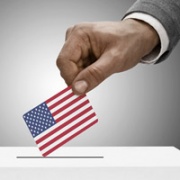
MAKING A JUST SOCIETY
Election Insights: Ariel White on Racial Attitudes and Bias
"There's evidence that government is less responsive to people of color. In my work with Julie Faller and Noah Nathan, we have found that election officials are less likely to respond to informational questions about voting eligibility when they're sent from Hispanic-sounding names than when they're sent by non-Hispanic white names. These officials didn't respond rudely to Hispanic questioners; they simply didn't write back as often, and didn't answer their questions as well."

Election Insights 2016: Andrea Campbell on Health Care
"The 2016 election offers voters a stark contrast on health care. Who should get health insurance coverage in the future, and how should it be funded? The stakes are large — both for the nation...and for individuals."
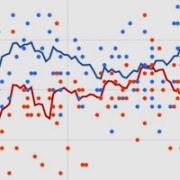
Election Insights 2016: Adam Berinsky on Electoral Polls
Don’t be distracted by any single poll. The media tend to highlight polls that are surprising — those that paint a different picture of the state of the race than the pack of the others. Resist this tendency."
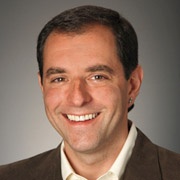
21ST CENTURY CITIZENSHIP | RESEARCH
Election Insights 2016: David Autor on Jobs, Economic Security
"The Earned Income Tax Credit (EITC), enacted in 1975 and enlarged by both Republican and Democratic administrations, is among the nation’s most significant tools for reducing poverty and encouraging people to enter the workforce. One of the most promising policies for assisting non-college workers is expanding the EITC to cover childless workers and non-custodial parents."